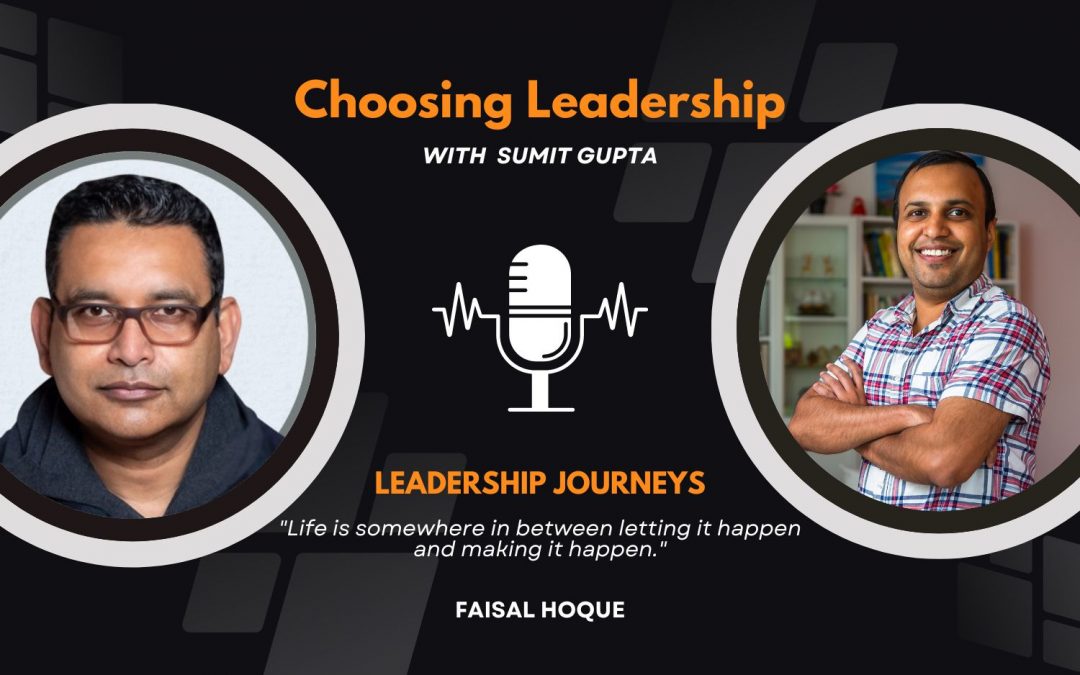This is the Leadership Journey series on the Choosing Leadership Podcast.
I believe we all have a lot to learn from each other’s stories – of where we started, where we are now, and our successes and struggles on the way. With this series of interviews, my attempt is to give leaders an opportunity to share their stories and for all of us to learn from their generous sharing. If you know a leader whom you would like to see celebrated on the show, please send me a message on LinkedIn with their name.
In the interview, Faisal shares how he himself financed coming to America at the age of 17 from Bangladesh, and the wisdom he learned from his supervisor when he was working as a janitor. He shared the health challenges of his mother and son, and how he derives meaning from what he does. He shared about travelling to Japan and being influenced by Zen meditation – and the role and relevance of meditation for today’s leaders.
You can find Faisal at the below links
In the interview, Faisal shares
- The definition of entrepreneurship is at the end of the day. It’s taking care of Your, financial well-being with your own venture.
- Life is a journey and you have ups and down, you have failures after failures, and then you have few successes, and then you have failures. So it’s never like a straight line.
- I’ve always been a dreamer, but I’m pragmatic and now I prepare for the worst-case scenario with a pragmatic mindset.
- You connect with what’s your true calling and try to make an impact. So it’s evolution, and it’s a journey and I, despite the ups and downs, I totally enjoy it.
- Experience is the best teacher.
- If you want to lift others first you have to lift yourself.
- Because of technology, today’s also an opportunity to make an impact, to be able to connect with people wherever and able to really take advantage of whatever gift that you may have.
- You can’t follow somebody else’s path. It’s your own unique journey.
- Inspiration can come from anywhere and everywhere.
- Life is somewhere in between letting it happen and making it happen. There’s a fine balance.
- A lot of people think mindfulness is about – you meditate and completely emptying your mind and you get lost and as a result you connect with yourself. That is a method, that’s a formal method of practising meditation, and then as a result you achieve mindfulness. But, since you mentioned Zen Buddhism, the monks two activities they treasure and practice repeatedly is sweeping and cleaning and cooking. The definition of mindfulness is really just focusing on the present moment.
- Let’s not get confused that you can make things happen without systemic execution. This combination of mindfulness and being empathetic to other people’s needs and where they are, combining those two things, that’s the hallmark of new leadership.
- We have absolutely entered into a creative innovative phase of evolution where mundane work is being taken over by automation and the real value comes from creativity and innovation.
- The best leaders are very mindful and they’re also very empathetic.

